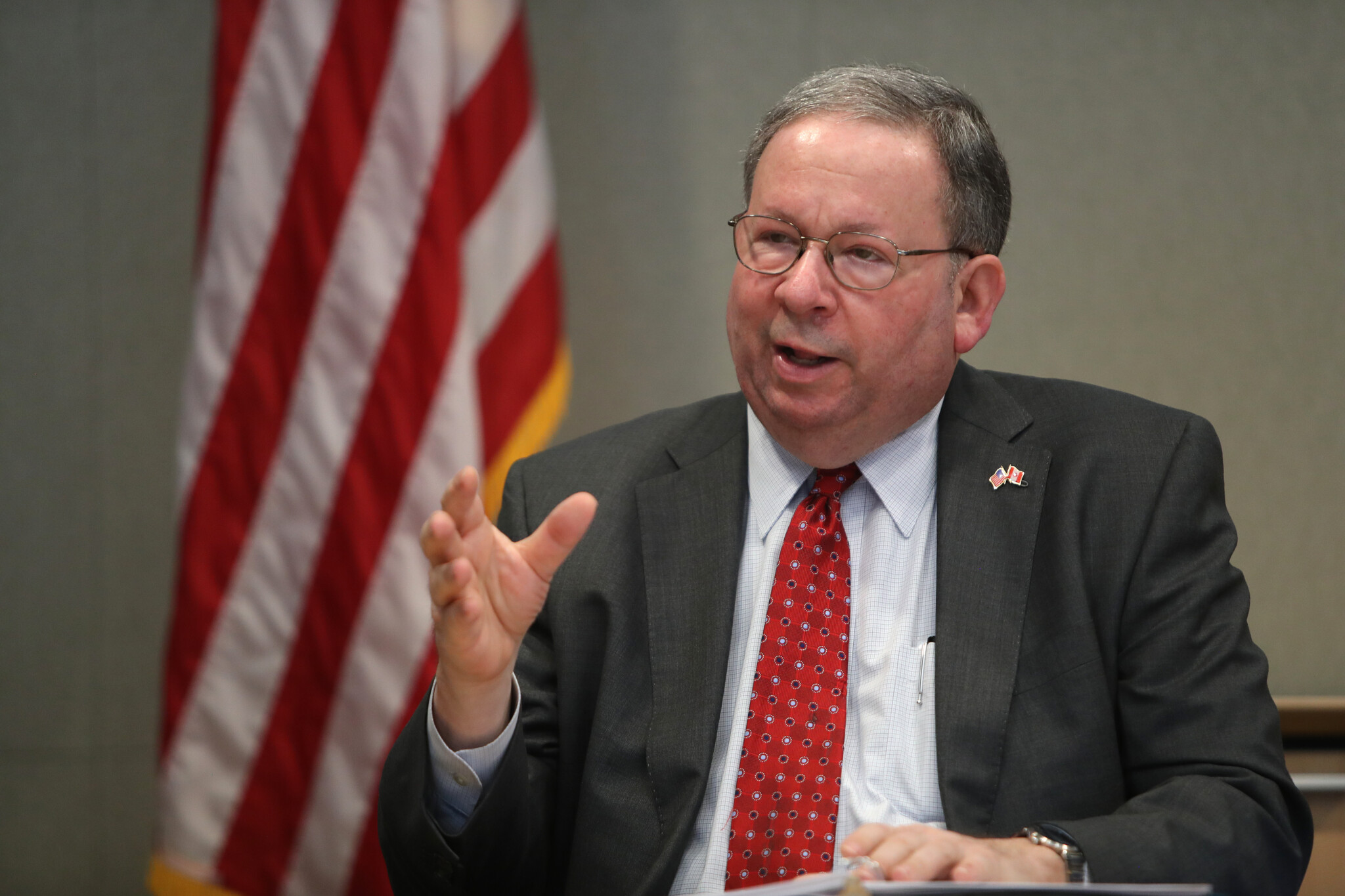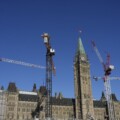U.S. Ambassador to Canada David Cohen says Canadians are consuming too much American news, which he believes is “unhealthy” because of American legacy media’s polarizing and partisan nature.
He added that it’s come at the expense of Canadians consuming news about their own country’s politics.
Cohen made the comments during a recent interview with The Hub’s managing editor, Harrison Lowman.
When asked about Canadians’ apparent obsession and preoccupation with the political news of the United States, Cohen, who is a former Comcast media executive, explained that he finds Canada’s consumption of American news from CNN, MSNBC, and Fox to be somewhat strange.
“I do think it is odd, particularly when I contrast it to the United States, where…virtually no one in the United States is paying any attention to Canadian politics,” he said.
“Every major Canadian household has easy access to American cable television news,” he noted.
“I’ll be honest with you, before I came here…Canadian cable television news outlets, I didn’t even know how to get them in the United States,” he added.
According to new statistics from the Reuters Institute, a significant number of Canadians, particularly in English Canada, rely on American outlets like CNN and the New York Times on a weekly basis for news.
In 2018, Canada was the biggest foreign market for the New York Times, making up around 27 percent of its total foreign audience. In an interview with Canadaland, the then New York Times Canada bureau chief said the paper’s Canadian audience hovered around 94,000.
In 2024, a New York Times press release announced the paper had reached two million international subscriptions, highlighting that it has “seen subscriber growth in recent years” in Canada. Some estimates have claimed the New York Times has more paying Canadian digital subscribers than any Canadian news outlet.
A Canadian fixation with America
Within our borders, Canadian media outlets have also become fixated on American politics.
True North reported that Canada’s public broadcaster CBC published 68 stories about the Kamala Harris campaign in one month. Back in 2020, CBC published 500 percent more stories about Harris than about Leslyn Lewis, a black woman running for federal office in Canada.
CBC has also held U.S. election night TV specials for the 2020 and 2016 U.S. presidential elections.
“World coverage has been a hallmark of CBC News since the public broadcaster was founded, and we dedicate more resources to international reporting than any other media outlet in Canada,” CBC general manager and editor-in-chief Brodie Fenlon recently explained in an article justifying the public broadcaster’s coverage of U.S. politics.
“Within our coverage of the world, the United States occupies a special place for some obvious reasons,” he added. “From arts and culture, national security, the economy to the environment—our countries are inextricably linked.”
As previously reported by The Hub, Canada’s politics are growing more and more Americanized.

President Joe Biden and Republican presidential candidate former President Donald Trump stand during a break in a presidential debate hosted by CNN, June 27, 2024, in Atlanta. John Bazemore/AP Photo.
Slanted news
Ambassador Cohen said even American outlets themselves have what he considers to be “an unhealthy preoccupation with American politics.”
“You’re getting an unfiltered and 24/7 perspective on the political structure from all of these cable television news outlets, without the balancing perspective of lots of people around you who have different opinions and who can balance a little bit what you’re seeing on a cable television news show,” he explained.
“I do think it’s unhealthy,” said Cohen, admitting that for his own mental health he took an intentional break from his country’s political news channels this summer.
According to media analysts, America’s “Big Three” news channels—Fox News, CNN, and MSNBC—all have political biases.
The AllSides bias checker rates Fox News as having a right-wing bias, CNN as having a bias that leans Left, and MSNBC as having a left-wing bias.
Meanwhile, many American newsrooms are lacking ideological diversity. According to a 2022 Syracuse University study, just 3.4 percent of American journalists now describe themselves as Republicans, while 36.4 percent describe themselves as Democrats.
“I come from Pennsylvania… [which] I think has been properly identified as maybe the battleground state in the upcoming election,” said Cohen. “So I can’t go anywhere in Pennsylvania where I don’t find equal numbers of people who have very different political opinions than what is being carried on MSNBC and, to a large extent, on CNN.”
“It’s just not necessarily an accurate depiction of the political process and the way people think to just get your news and information from cable television news outlets,” he added.
This is not the first time that Cohen has spoken about Canada’s massive appetite for American news.
In a July interview with the Hill Times, Cohen said he believes one of the reasons why Canadians are often anxious about the United States is because of their media consumption.
The Hub’s full-length interview with U.S. Ambassador to Canada David Cohen can be found here.









